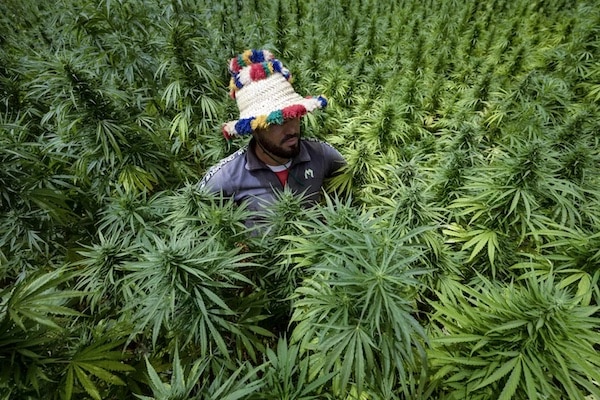Morocco‘s King Mohammed VI has pardoned nearly 4,800 people convicted, prosecuted or wanted on charges linked to illegal cannabis cultivation, the justice ministry said in a statement on Monday.
The pardon aims to encourage farmers “to engage in the legal process of cannabis cultivation to improve their revenue and living conditions,” Mohammed El Guerrouj, head of the Moroccan cannabis regulator Anrac, told Reuters.
“This is an exceptional initiative that will allow these farmers and their families to live in serenity and tranquillity, and to participate in the new dynamic of legalisation,” El Guerrouj told AFP.
The North African country is the world’s leading producer of cannabis, according to the United Nations.
In 2021, the government adopted a law that legalised the cultivation of the plant for medicinal and industrial uses in rural provinces in the north-eastern Rif region so as to support farmers.
Cannabis has been grown in this poor and neglected mountainous area for centuries, providing a living for between 80,000 and 120,000 families in 2019, according to official estimates.
The law also aims at preventing the illegal drug trafficking that dominates the trade and export of the plant.
The pardon will allow those involved in illegal cannabis cultivation “to integrate into the new strategy,” the ministry statement said.
El Guerrouj described the king’s decision as “an important step on the path to the gradual elimination of illicit cultivation through legalisation or the introduction of alternative crops.”
Anrac, established in 2022 as part of the new law, has reported a staggering surge in cannabis-related licences issued since the start of 2024.
The agency stated in August that it had approved nearly 3,000 licences, a dramatic increase from the 609 permits issued in 2023, the World Morocco News reported.
Although the 2021 law upholds a ban on the recreational use of cannabis, Morocco remains the largest supplier of cannabis resin in Europe’s illicit cannabis retail market as of 2024, according to the European Union Drugs Agency and Europol.

